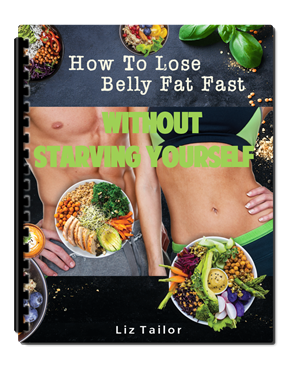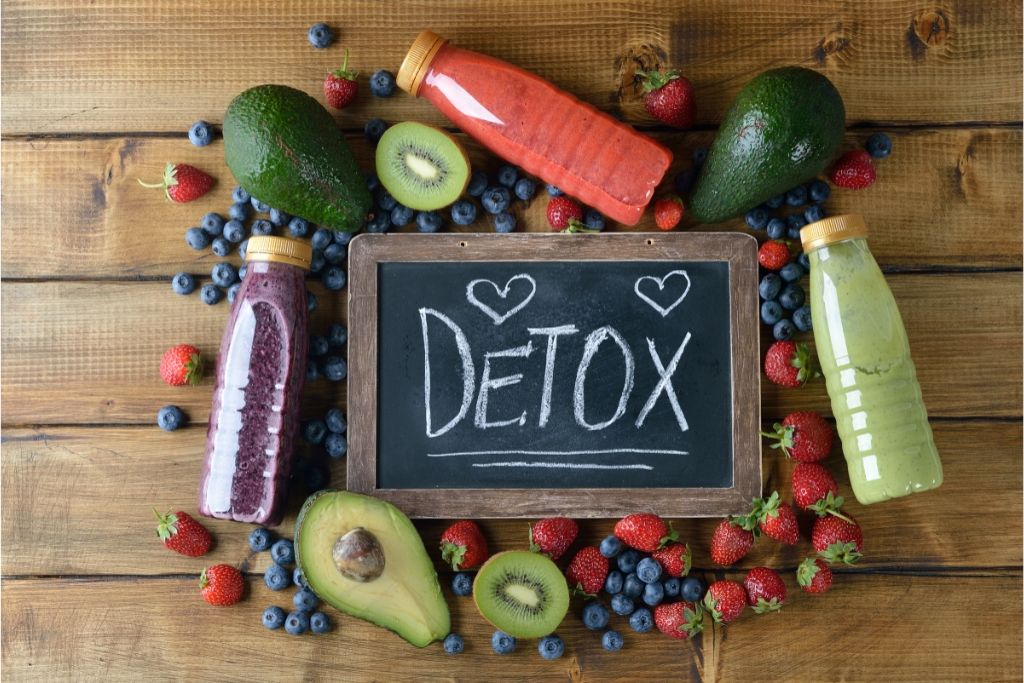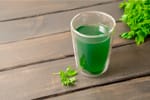If you're feeling sluggish, bloated, and tired all the time, chances are that your body needs a detox.
Detoxification is all about cleansing your body from within and getting rid of the harmful toxins that accumulate in your system due to unhealthy diets, lack of exercise, and environmental pollutants.
The good news is that you don't need to go on a restrictive cleanse or buy expensive supplements to detoxify your body.
Today, we'll give you ten proven detox tips that are safe, effective, and easy to follow.
1)) Start With Water
It might sound simple, but drinking plenty of water is the most effective way to flush out toxins from your body.
Aim for at least eight glasses of water a day.
You can also add lemon or cucumber to your water for added benefits.
More Ways to Use Water for Detoxification
- Infuse your water: Adding fruits, herbs, or vegetables not only enhances the taste of your water but also infuses it with vitamins and antioxidants. Try combinations like strawberry and basil, or lemon and mint for a refreshing detox drink.
- Drink herbal teas: Herbal teas like green tea, chamomile, or hibiscus are rich in antioxidants and have natural detoxifying properties. Drinking a cup or two a day can help cleanse your system.
- Try water-rich foods: Foods like cucumbers, watermelons, and oranges are high in water content and can help keep you hydrated while providing essential nutrients. Include them in your diet to boost your water intake.
Water is a crucial component in any detox plan.
Drinking plenty, whether plain or infused, along with the consumption of water-rich foods and herbal teas, aids in flushing out toxins, maintaining hydration, and enhancing overall health.
The key to successful detoxification lies in consistency and commitment to these practices.
2)) Eat More Fiber
Foods rich in fiber, such as fruits, vegetables, and whole grains, help your body eliminate waste and toxins more efficiently.
Aim for at least 25-30 grams of fiber a day.
Incorporating More Fiber into Your Diet
- Include a variety of fruits and vegetables: Fresh produce like apples, bananas, oranges, and broccoli are high in fiber. Try to incorporate at least five servings of fruits and vegetables into your meals each day.
- Switch to whole grains: Replace white bread and pasta with their whole-grain counterparts. Foods like brown rice, whole wheat bread, and oatmeal are excellent sources of fiber.
- Add legumes to your diet: Beans, lentils, and chickpeas are not only packed with fiber but also a good source of plant-based protein. Add them to salads, soups, or stews for a fiber boost.
Consuming ample fiber is a powerful way to support your body's detoxification process.
By incorporating a variety of fiber-rich fruits, vegetables, whole grains, and legumes into your meals, you promote healthier digestion and more efficient elimination of toxins.
A well-balanced diet high in fiber is not only beneficial for detoxification, but it also contributes to overall well-being and disease prevention.
3)) Cut Back On Sugar
Refined sugar is one of the biggest culprits when it comes to inflammation, oxidative stress, and toxin accumulation in the body.
Cut back on sugary drinks, sweets, and processed foods to support your body's natural detoxification processes.
Reducing Sugar Intake for Better Health
- Opt for natural sweeteners: Instead of refined sugar, try natural sweeteners like honey, maple syrup, or stevia. They are healthier options and still satisfy your sweet tooth.
- Read food labels carefully: Many processed foods contain hidden sugars. Be sure to read the labels and choose products with no added sugars.
- Incorporate more whole foods: Whole foods like fruits, vegetables, and whole grains are naturally low in sugar. Adding more of these to your diet can help reduce your sugar intake.
Reducing sugar intake is a vital step in detoxifying your body and promoting overall health.
By opting for natural sweeteners, carefully reading food labels, and prioritizing whole foods, you can significantly cut down on your sugar consumption.
The goal is not to completely eliminate all sugars but to make healthier choices and reduce excess.
This way, you'll support your body's detoxification process and foster long-term health and wellness.
4)) Sweat It Out
Regular exercise not only helps you burn calories and build muscle but also helps your body eliminate toxins through sweat.
Try to get at least 30 minutes of moderate exercise most days of the week.
Enhancing Detoxification Through Exercise
- Choose exercises you enjoy: The best exercise for detoxification is one you'll stick with. Whether it's yoga, running, dancing, or cycling, choose a physical activity you love, and you're more likely to maintain it.
- Incorporate strength training: Strength training exercises, such as weightlifting or resistance workouts, not only help build muscle but also increase your metabolic rate, aiding in the detoxification process.
- Try high-intensity interval training (HIIT): This type of workout alternates between intense bursts of activity and short recovery periods. HIIT workouts can help you sweat out toxins and burn calories in a shorter amount of time.
Engaging in regular exercise is a significant facet of a successful detox plan.
By choosing activities you enjoy, incorporating strength training, and mixing in high-intensity interval training, you can effectively eliminate toxins through sweat, boost your metabolism, and promote overall health.
Consistency is key. By incorporating regular physical activity into your routine, you nourish not only your body but also your mind, paving the way for sustainable health and wellness.
5)) Practice Mindful Eating
Slowing down and being more mindful of your food choices can help you tune into your body's natural signals and prevent overeating and cravings.
Eating slowly and savoring your food can also help you digest your food more effectively.
Embracing Mindful Eating for Healthful Living
- Focus on your food: When you eat, avoid distractions like TV or smartphones. By focusing solely on your food, you can better appreciate the flavors, textures, and aromas, making eating a more enjoyable and satisfying experience.
- Listen to your body's signals: Pay attention to your hunger and fullness cues. Eating when you're truly hungry and stopping when you're comfortably full can help prevent overeating and unnecessary snacking.
- Chew thoroughly: Take the time to chew each bite thoroughly. This not only slows down your eating pace but also aids in digestion and allows better absorption of nutrients.
Practicing mindful eating cultivates a deeper, more meaningful relationship with food.
By focusing on your meals, listening to your body's cues, and chewing thoroughly, you not only optimize digestion and nutrient absorption but also enhance your overall eating experience.
This approach encourages a healthy balance between nourishment and pleasure, ultimately supporting your body's detoxification process and contributing to long-term well-being.
6)) Try Intermittent Fasting
Intermittent fasting involves alternating periods of eating and fasting, which can help your body enter a state of autophagy, where it cleans up damaged cells and toxins.
Start by skipping breakfast a few days a week and gradually increasing the fasting window over time.
Embracing Intermittent Fasting for Detoxification
- Start slow: If you're new to intermittent fasting, start by skipping just one meal a few days a week. As your body adjusts, gradually increase the fasting window.
- Stay hydrated: During fasting hours, ensure you stay well-hydrated. Water, herbal teas, and black coffee (without sugar or milk) are all good options.
- Eat balanced meals: When you do eat, make sure your meals are well-balanced and nutrient-dense to fuel your body properly and keep you feeling satisfied.
Adopting intermittent fasting can be a powerful tool in your detox journey.
By starting slow, staying hydrated during fasting hours, and ensuring that your meals are nutritious and balanced, you can enhance the natural detoxification process of your body.
Intermittent fasting is not about deprivation, but rather about redefining when you eat.
Adapt it to suit your lifestyle and health goals, and you'll find it can be a sustainable and beneficial practice for long-term health.
7)) Load Up On Antioxidants
Antioxidant-rich foods, such as berries, nuts, green leafy vegetables, and dark chocolate, can help neutralize free radicals and reduce oxidative stress in the body.
Boosting Health with Antioxidant-Rich Foods
- Incorporate colorful fruits and vegetables: Foods rich in antioxidants are often brightly colored. Aim to incorporate a variety of colors in your diet, such as blueberries, raspberries, spinach, bell peppers, and squash.
- Snack on nuts and seeds: Almonds, walnuts, flaxseeds, and chia seeds are all packed with antioxidants. Use them as a snack or sprinkle them on salads, yogurt, or cereal for an antioxidant boost.
- Indulge in dark chocolate: Dark chocolate is not only deliciously satisfying but also loaded with antioxidants. Enjoy a square or two for a healthy dessert option.
Loading up on antioxidants plays a crucial role in the body's detoxification process.
By incorporating a color-rich variety of fruits and vegetables, snacking on nuts and seeds, and indulging moderately in dark chocolate, you can effectively combat free radicals and reduce oxidative stress.
This nutrient-powered approach is not just about detoxification, it's a lifestyle choice that contributes to better health and well-being in the long run.
8)) Get Enough Sleep
Sleep is essential for your body's natural detoxification processes.
Aim for at least 7-8 hours of quality sleep each night to support your body's healing and recovery.
Harnessing the Power of Restful Sleep
- Establish a regular sleep schedule: Going to bed and waking up at the same time every day can help regulate your body's internal clock and improve the quality of your sleep.
- Create a sleep-friendly environment: Make your bedroom conducive to sleep. This can include controlling the room's temperature, reducing noise and light levels, and investing in a comfortable mattress and pillows.
- Limit exposure to screens before bed: The light emitted by phones, computers, and TVs can interfere with your body's preparation for sleep. Try to turn off these devices at least an hour before bedtime.
Getting sufficient sleep is an essential part of your body's natural detoxification process.
By maintaining a regular sleep schedule, creating a conducive sleep environment, and limiting screen time before bed, you can significantly enhance the quality of your rest.
Good sleep is more than just the quantity; it's also about the quality.
Prioritizing restful sleep not only supports detoxification but also contributes to overall health and well-being.
9)) Reduce Stress
Chronic stress can negatively impact your health and lead to inflammation, hormonal imbalances, and toxin accumulation in the body.
Find ways to manage stress, such as meditation, yoga, or spending time in nature.
Effective Strategies for Stress Reduction
- Adopt a mindfulness practice: Activities like meditation, yoga, or simple breathing exercises can help you cultivate mindfulness and alleviate stress. Aim to incorporate these into your daily routine for better stress management.
- Connect with nature: Spending time outdoors can have a therapeutic effect, reducing stress levels and promoting a sense of tranquility. Try to engage in outdoor activities, even something as simple as a daily walk in a park.
- Maintain a balanced diet: Eating a healthy, balanced diet can have a profound impact on your stress levels. Nutrient-rich foods not only nourish your body but also help maintain stable blood sugar levels, reducing stress-related mood swings.
Reducing stress is a vital component of a successful detoxification process and overall health maintenance.
By embracing mindfulness practices, connecting with nature, and maintaining a balanced diet, you can effectively manage stress levels.
Managing stress is about fostering a lifestyle that prioritizes mental wellness.
This, in turn, helps facilitate a stronger, healthier body capable of efficiently eliminating toxins and maintaining optimal health.
10)) Support Your Liver
Your liver is your body's natural detoxifier, so it's essential to support its function.
Eating foods such as garlic, turmeric, and cruciferous vegetables, and avoiding alcohol and processed foods can help keep your liver healthy.
Nourishing and Protecting Your Liver
- Incorporate liver-supporting foods: Add foods like garlic, turmeric, and cruciferous vegetables to your diet. These foods not only provide essential nutrients but also aid in liver detoxification.
- Avoid harmful substances: Minimize consumption of alcohol and processed foods as these can put a strain on your liver over time.
- Stay hydrated: Drinking ample water throughout the day is crucial for liver health as it helps the liver carry out its detoxification processes more efficiently.
Supporting your liver function is crucial in promoting effective detoxification within the body.
By incorporating liver-supporting foods, limiting the intake of harmful substances, and staying well-hydrated, you can significantly enhance your liver's health and efficiency.
A healthy liver is not just about detoxification, it's a cornerstone for maintaining overall health and well-being.
Every step taken towards supporting your liver is a step towards a healthier, more vibrant you.
Conclusion
These are just a few of the many ways to support your body's natural detoxification processes and promote optimal health.
Detoxification is not a one-time event; it's a lifestyle that you can integrate into your daily routine to feel better, look better, and live longer.
Start with small changes, and gradually work your way up to a more comprehensive detox plan that works for you.
With dedication and commitment, you can achieve a healthier, happier, more vibrant you!
Download Our Free E-book!







